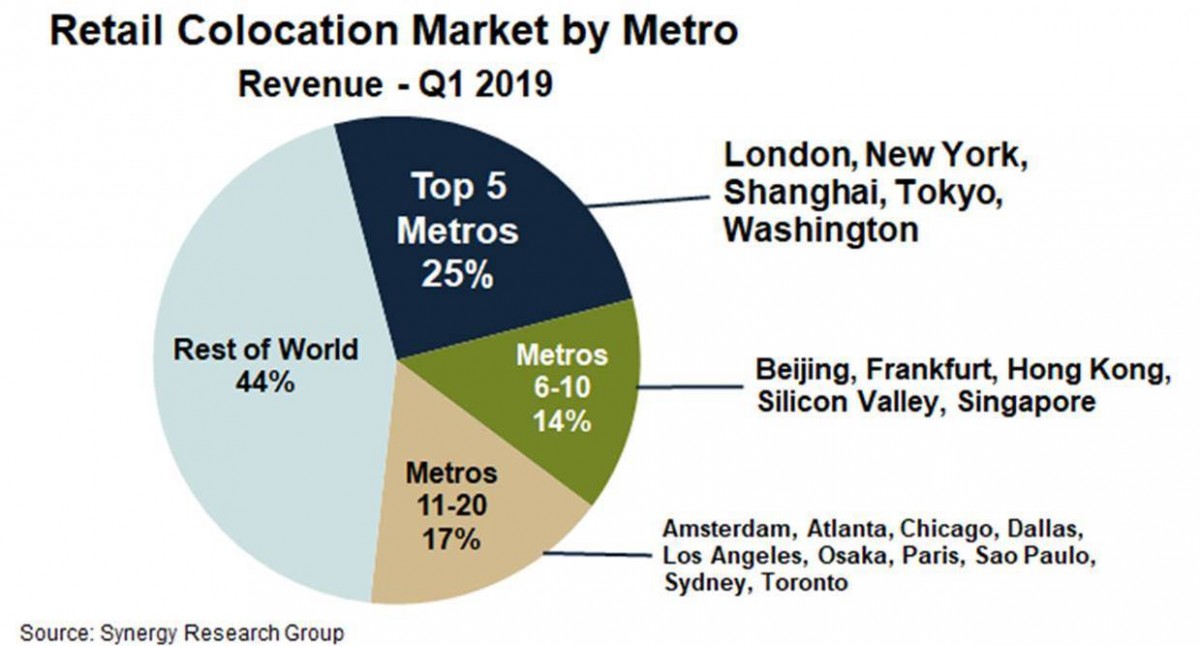The next 15 largest metro markets account for another 31% of the market. Those top 20 metros include eight in North America, seven in the APAC region, four in EMEA and one in Latin America. In Q1 Equinix was the retail colocation market leader by revenue in 14 of the top 20 metros, with NTT being the only other operator to lead in more than one of the top metros. In wholesale colocation there is a somewhat different mix and ranking of metros, but the market is even more concentrated with the top 20 metros accounting for 71% of worldwide revenue. North America features more heavily in wholesale and accounts for eleven of the top 20 metros. Digital Realty is the leader in eight of the top 20 wholesale markets and Global Switch the leader in three others. Other colocation operators that feature heavily in the top 20 metros include 21Vianet, @Tokyo, China Telecom, CoreSite, CyrusOne, Interxion, KDDI, SingTel and QTS.
Over the last twelve quarters the top 20 metro share of the worldwide retail colocation market has been relatively constant at around the 55-56% mark, despite a push to expand data center footprints and to build out more edge locations. Among the top 20 metros, those with the highest retail colocation growth rates (measured in local currencies) are Sao Paulo, Sydney, Beijing, Shanghai and Frankfurt, all of which had a rolling annualized growth rate of over 15%. While the US didn’t feature among the highest growth metros for retail colocation, on the wholesale side both Washington/Northern Virginia and Silicon Valley are growing at double-digit rates.
“We continue to see robust demand for colocation across the board, with the standout regional growth numbers coming from APAC and the highest segment-level growth coming from colocation services for hyperscale operators,” said John Dinsdale, a Chief Analyst and Research Director at Synergy Research Group. “It is particularly noteworthy that the market remains concentrated around the most important economic hubs, reflecting the importance of proximity to major customers. Hyperscale operators often focus their own large data center builds away from the major metros, in areas where real estate prices and operating costs are much lower, so they too will increasingly rely on colocation providers to help target clients in key metros. The large metros will maintain their share of the colocation market over the coming years.”




